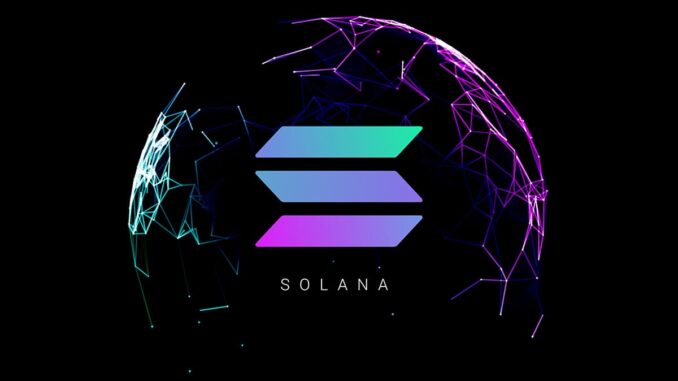
Alex Thorn, Head of Research at Galaxy Digital, recently provided an analysis on the filings for spot Solana Exchange Traded Products (ETPs) by investment firms VanEck and 21Shares. These filings, made with the US Securities and Exchange Commission (SEC) on June 28, represent an aggressive move to integrate Solana (SOL) into the structured framework of regulated financial markets, akin to those established for Bitcoin and Ethereum.
The proposal by VanEck, as outlined in their S-1 document, aims to launch a commodity-based trust that will hold Solana directly, thus allowing the ETP to track the asset’s market price closely. Unlike some crypto ETPs, this product will not engage in staking the held assets.
Following the announcement, the market responded positively, with SOL’s price marking an approximate 8% increase. However, the filing is still in its early stages, lacking in detailed operational structures such as custodian, cash custodian, and authorized participants. These aspects are typically addressed in later amendments as the product matures toward final approval.
Why The Odds For A Spot Solana ETF Are Slim
As of the latest updates, VanEck has not yet filed the requisite 19b-4 form, which triggers the SEC’s formal review process. According to Bloomberg’s analyst James Seyffart, the typical review period, once initiated, extends up to 240 days. Thus, if VanEck files soon, the final determination could be expected around March 15, 2025. This process involves several regulatory checkpoints and public comment periods which are standard to the approval workflow for new financial products.
The SEC currently views Solana as an unregistered security, primarily based on ongoing litigation against major cryptocurrency exchange Coinbase. This classification complicates the approval process for a Solana-based ETP. Given that the Securities & Exchange Commission is currently alleging in its case against Coinbase that Solana is an unregistered security, absent a substantial change in posture from the SEC, it is likely that this application will be rejected,” stated Thorn.
Historically, the SEC has adopted a cautious approach towards crypto ETPs. The process for approval generally follows a sequential path starting with regulated futures markets, then ETPs based on those futures, and ultimately, US-based spot ETPs. Bitcoin and Ethereum ETPs have navigated this pathway with varying degrees of resistance and success.
Significantly, the SEC’s prior refusal to approve Bitcoin ETPs was based on concerns over market size and surveillance. The turning point came with a DC Circuit Court of Appeals ruling in August 2023, which supported the sufficiency of futures market surveillance. This ruling facilitated the approval of Bitcoin spot ETPs, which commenced in January 2024, followed by Ethereum ETPs in May 2024.
The Odds Could Change Quickly
The recently passed FIT21 Act in the US House, which delineates the regulatory boundaries between the SEC and the Commodity Futures Trading Commission (CFTC), could play a crucial role in future cryptocurrency regulation. This legislation clarifies which digital assets should be treated as commodities and which as securities. Such legislative clarity could pave the way for future approvals of digital currency ETPs, including Solana. “That type of clarity could also materially affect or improve the odds of ETP approval for underlying digital currencies beyond Bitcoin and Ether,” Thorn noted.
Overall, the path forward for Solana ETPs is fraught with regulatory hurdles and uncertainties. Alex Thorn of Galaxy Digital summarizes, “VanEck has a history of filing early: in the last round of Bitcoin ETPs, they were the fourth filer (filed one day after BlackRock), and they were the first to file for a spot Ethereum ETP. That’s commendable – perhaps here they are betting on the outcome of the election.”
At press time, SOL traded at $147.54.
Featured image from ByteTree, chart from TradingView.com




Be the first to comment